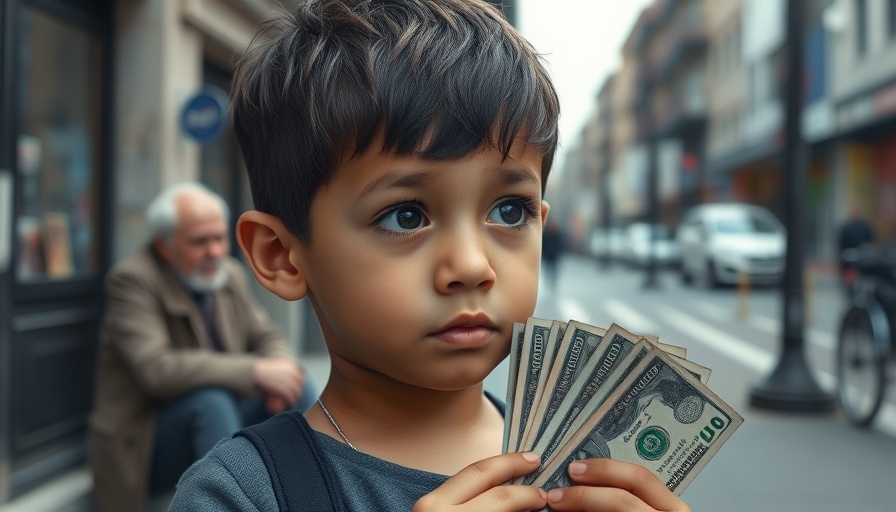
The Emotional Power of Giving: More Than Just Money
In a world watching every penny, understanding the emotional and psychological impacts of giving is vital. Many individuals find that donating, whether time, resources, or skills, invokes profound personal satisfaction. This sentiment resonates deeply among communities, reinforcing the notion that collective efforts can significantly improve the well-being of those around us. While financial contributions are often highlighted, social connections and community engagement are equally, if not more, significant aspects of giving.
Navigating Donations While Financially Tight
For families facing unemployment or navigating early retirement, the challenges of giving expand beyond a simple financial statement. It's a delicate balancing act, especially in a high-cost area like Maryland. The inherent instinct to help often collides with the obligations of securing a family's financial future. As highlighted by individuals in similar situations, living on a tightened budget doesn't mean you cannot contribute. Offering your skills or time to community projects can provide value without straining finances, allowing a sense of participation and contribution.
Creative Giving Solutions During Financial Uncertainty
Here are some innovative ways to give back without stretching your budget:
Focus on Skills: Share your expertise, whether it’s mentoring youth, offering free workshops, or helping with community events. This strategy fosters goodwill while minimizing monetary expenditure.
Organize Fundraising Events: Collaborate with local businesses to organize community events that raise money for causes you care about. This approach can enhance community spirit while providing financial aid to those in need.
Joint Giving Efforts: Pool resources with friends or neighbors for a more substantial impact. By collaborating, your efforts can shift from individual contributions to collective action, thus reducing personal financial pressure.
Be a Volunteer Ambassador: Using your time to promote charities and nonprofits can significantly help them secure funds through increased awareness without a direct financial contribution from you.
Building A Culture of Giving within the Community
Establishing a culture of giving enriches both the giver and the community. By exemplifying generosity, individuals can inspire others to join in solidarity, promoting a cycle of support and gratitude. Initiatives like community gardens, shared meals, and group projects not only provide immediate support but also cultivate long-term relationships based on trust and shared purpose. This is especially relevant in Maryland, where neighborhoods thrive on collaboration and support for one another.
Embracing Financial Security and Generosity
Your financial security is a valid concern, especially when considering donations during uncertain times. However, the returns on investing in communal well-being can give personal peace and fulfillment that money alone cannot buy. Even as you prioritize savings and income, small acts of kindness and support can amplify your impact without compromising your financial future.
Consider the Long-Term Benefits of Generosity
Understanding that giving can lead to long-term emotional and psychological gains should not be understated. How we act during tough times often defines the fabric of our communities and our personal identities. In prioritizing acts of kindness through time, resources, or advocacy, individuals find a sense of belonging and purpose that enriches their lives.
Take Action and Connect
If you're motivated to give back but struggle with financial constraints, think creatively about how you can make an impact. Whether through skilled volunteering, community organizing, or simply spreading awareness, there are many paths to contribute. Embrace the opportunity to boost your community's health and wellness, ensuring that both your family and others thrive.
 Add Row
Add Row 
 Add Element
Add Element 

Write A Comment